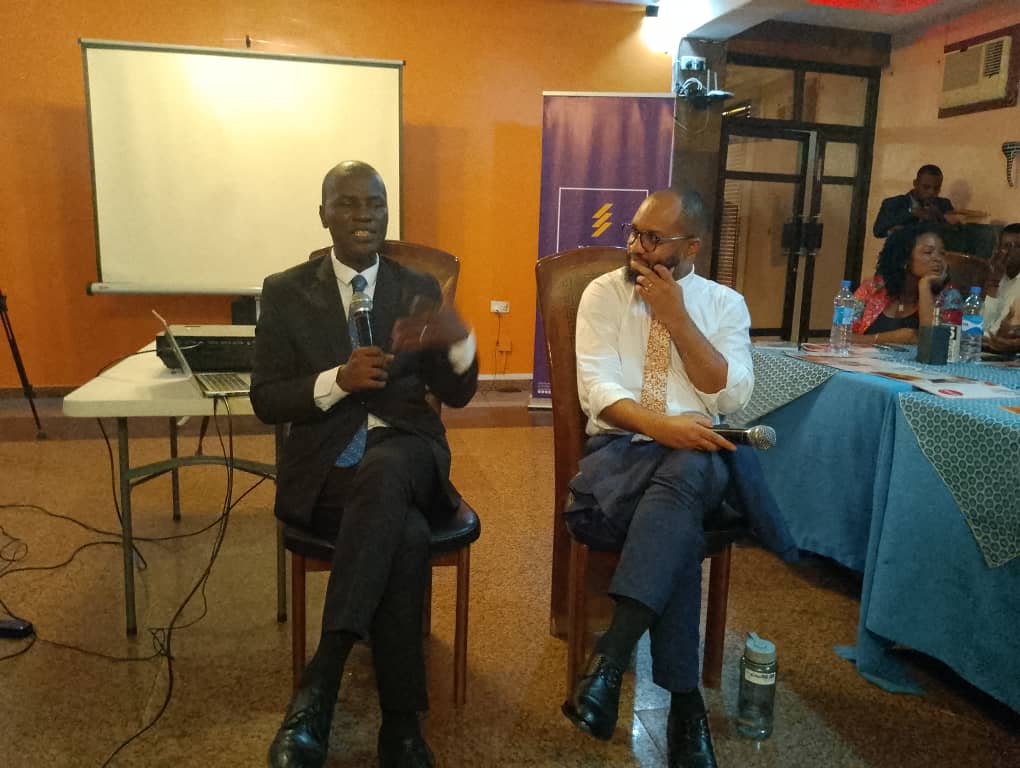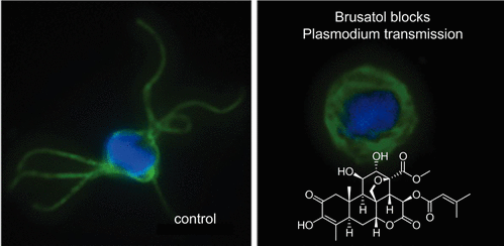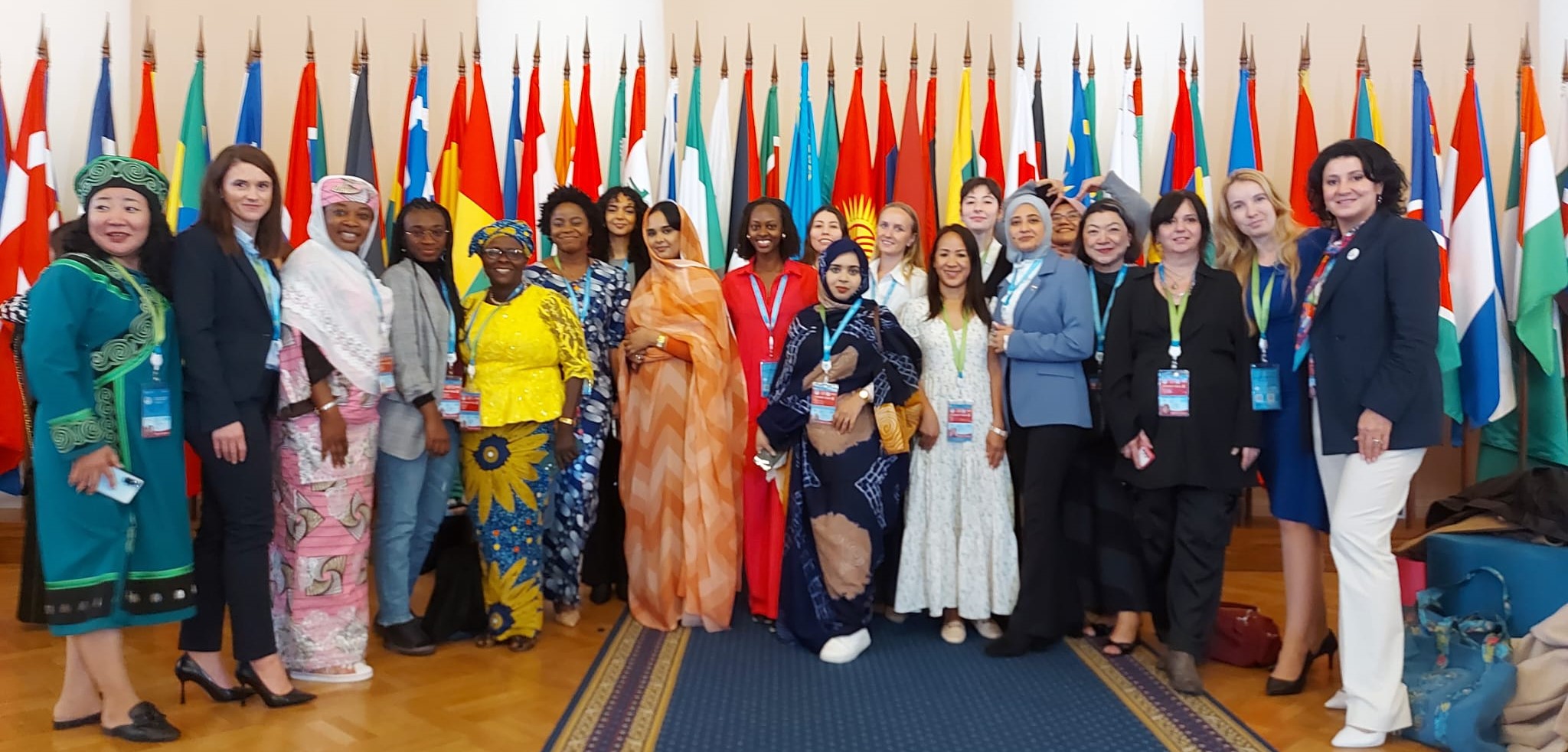By Joke Kujenya
WITH OVER 130 attendees—30 in person and over 100 via Microsoft Teams, participants from across Nigeria, on Thursday, October 24, 2024, converged via a hybrid session aimed to equip journalists with cutting-edge AI skills necessary for a rapidly evolving media landscape.
It was dubbed a pivotal workshop with the theme: “Integrating AITools in Contemporary Media Practices for Innovation and Excellence,” Polaris Bank initiated and funded it as part of its quality contribution to the journalism trade in Nigeria.
From about 10.00am to 3.00pm, the training encouraged journalists to apply solutions journalism techniques, emphasizing evidence-based reporting that critically examines responses to societal issues.
The forum held at the JEVINIK Place on Isaac John Stree, GRA, Ikeja, Lagos.
In an age of misinformation, participants learned how to use fact-checking tools, digital forensics, and multimedia formats to reach audiences on multiple platforms, reinforcing the role of truth in public discourse.
Led by Dr. Chike Mgbeadichie, a Senior Lecturer at Pan-Atlantic University, and Mr. Lekan Otufodunrin, Executive Director of the Media Career Development Network, the training delved deeply into the impact of AI on investigative and data-driven journalism.
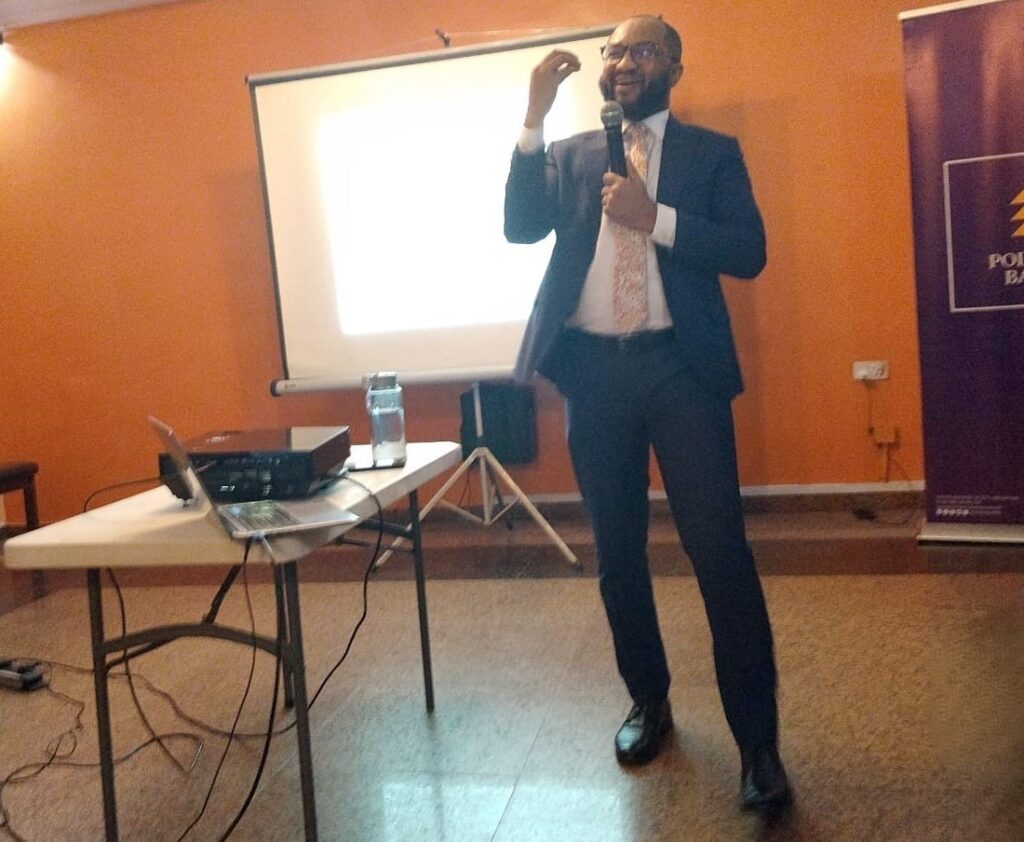
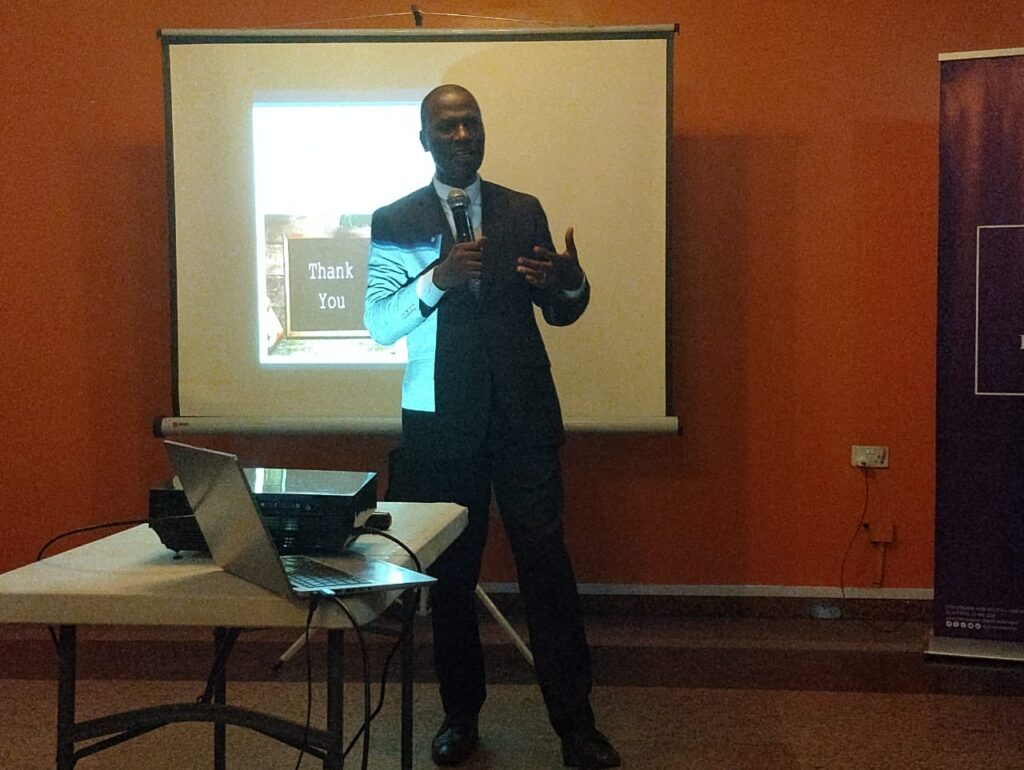
Both men’s insights laid a foundation for transforming Nigeria’s media industry by emphasizing technology’s role in modern journalism.
Dr. Mgbeadichie emphasized what he called ‘Vertical, i.e. Critical Thinking’ and ‘Lateral which is Creative Thinking’ and stressed that both are essential skills for journalists navigating today’s complex media landscape.
Through engaging exercises, he encouraged participants to use AI for idea generation, stressing its potential as a “collaborative partner” in uncovering fresh perspectives and story angles.
His approach encouraged lateral thinking, showing journalists how AI-driven analysis can reshape storytelling while ensuring accuracy and depth.
Using frameworks like the Disney Creative Strategy and SCAMPER, he taught journalists to explore how AI can help in organizing, synthesizing, and presenting information innovatively, making it possible to meet the growing demand for diverse content and to boost their ‘idea box’ respectively.
Dr. Mgbeadichie also counselled participants to approach AI not as a replacement for traditional journalistic principles but as a tool that enhances storytelling rigor and reach.
Emphatically, and touching his head, he taught journalists never to allow the AI take over their individual abilities to use their God-given brains in navigating the complexities of their noble profession.
The interactive nature of Dr. Mgbeadichie’s training fostered an environment where he showed participants on ways to experiment with state of the media AI tools like Google’s Pinpoint for breaking news, investigative stories, document analysis and more.
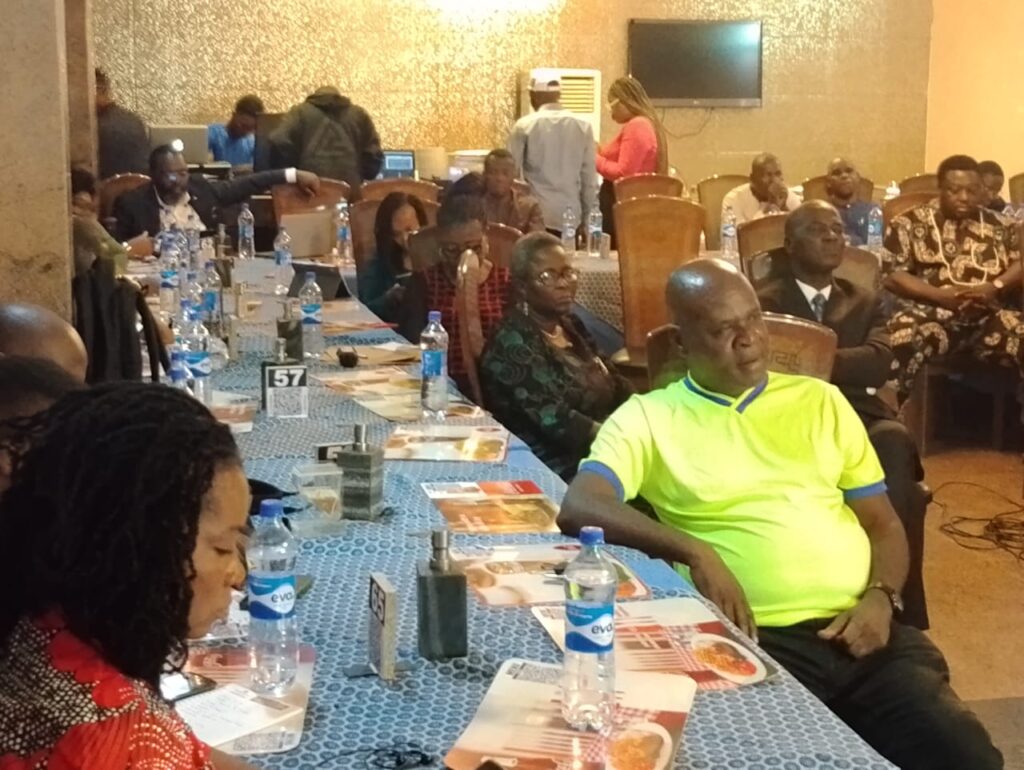
He said journalists can use Jasper AI for content ideation, LongShot AI as an all-in-one tool writing assistant that helps reporters craft fresh and friendly content faster, while Descript is a fascinating AI tool for audio and video journalism.
The lecturer also taught that QuillBot is one AI paraphrasing tool that helps to rephrase any text while retaining the originality of any content including correct vocabulary, tone, and style.
He also shared insights on Shorten, which as its name implies, can be used for conciseness or clarity and Fluency would improve writing language and eliminate grammatical errors with ease.
He shared others such as Connexun, a news and text analysis AI tool, JECT.AI helps with fresh news angles by identifying emerging trends, Article Forge, a machine learning for writers to generate long-form content faster with ease, while Vetted is an AI Expert Discovery Platform that helps journalists to contact verified news sources directly.
Dr. Mgbeadichie however noted that some of these tools have been found invaluable for tasks such as transcribing interviews, managing data, and monitoring trends.
In his usual gentle mien, Otufodunrin laid the foundation that the media like every sector in the country is in a state of flux.
This makes businesses, such as sales and advertising, not to be as good as they used to be based on traditional revenue models.
The consequent of this is that media organisations are unable to attract and retain experienced staff along with majority paying poor remuneration or not paying. And it is this continuous digital disruption which many traditional practitioners are struggling to catch up with.
Otufoduntin notes that AI-powered Tools such as Open Source Intelligence (OSINT) and Geo-journalism, are vital for factual accuracy and credibility in reporting and can boost chances of being recognized for gaining grants to generate modest revenues for dedicated reporters.
He also psyched on solutions journalism, digital forensics, and AI-enhanced tools as vital tools for journalists that mean the business of quality journalism to verify data, as these can help them to provide a framework for more rigorous investigations.
“AI is a powerful ally in maintaining public trust and accuracy,” Otufodunrin said, emphasizing that these tools empower journalists to reveal complex stories with clarity and integrity.
He also stressed that solutions journalism, supported by AI, can actually empower journalists to report on societal issues in more engaging ways for their audiences while highlighting initiatives and solutions, thereby fostering accountability and encouraging progress.
Pressing digital shift, Otufodunrin, a senior journalist himself, urged colleagues to adopt tools for data journalism, fact-checking, and multimedia storytelling for each of them to maintain relevance in today’s media environment.
He adds that “Traditional journalism alone no longer meets the needs of a multimedia-driven audience and as such future success lies in digital innovation and adaptability.”
In his words: “Fierce competition from especially, non-professional journalists who are more digital savvy. No guaranteed future for media organisations and threatened career future for many journalists. In fact, the situation not peculiar to Nigeria, it’s global,” it thus behooves on respective journalist to be innovative in media practice, maximise their career development opportunities in order to remain excellent in the profession,” Otufodunrin affirms.
He said the required response to the state of the media and practice in these current times is for an average journalist to be, understand the new state of the media and stop living in the past.
“Journalism is not just changing, it has changed, it’s you that has not changed. Upgrade and use new media skills, including social media professionally, update your social media profiles, engage and be a thought leader,” Otufodunrin stressed further.
At the end of the two presentations, comments and questions from attendees highlighted a desire for practical, hands-on learning that could directly impact their daily reporting, making the session as informative as it was practical.
Polaris Bank’s Head of Brand Management and Corporate Communications, Rasheed Bolarinwa, said the workshop was hosted to showcase their commitment to Nigerian media.
He also described it as a reflection on the bank’s decade-long dedication to empowering journalists, stating, “Journalists are crucial to a well-informed society, and our commitment to their growth extends beyond workshops. We’re actually building a media ecosystem that can adapt to the demands of an evolving world.”
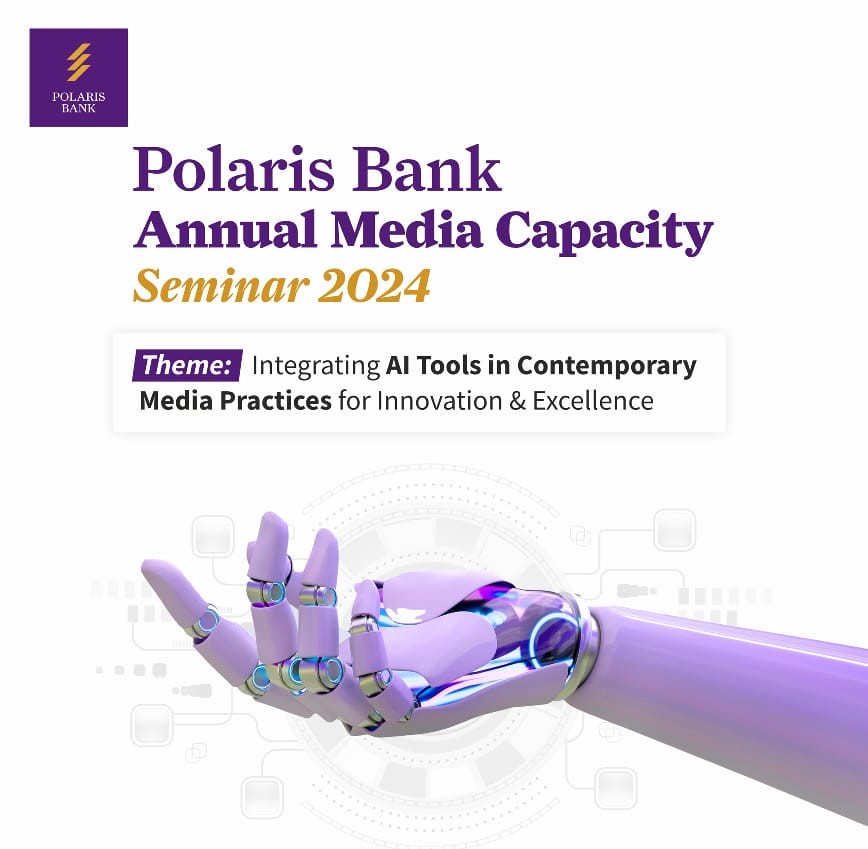
Bolarinwa also highlighted Polaris Bank’s partnership with veteran journalist Taiwo Obe and how, over the years, it has facilitated workshops across Nigeria, training more than 5,000 journalists to date.
He assured participants of Polaris Bank’s continued support, noting that the media’s role in fostering informed citizens and shaping public discourse remains paramount.
As the workshop came to a close, both facilitators emphasized the value of continuous learning and adaptability in AI’s integration into journalism as they urged participants to continue to get better equipped to harness AI for responsible, impactful journalism.
Some of the participants told JKNewsMedia that the takeaway for them were Otufodunrin’s words, stressing: “Be more digital in operations and not remaining analogue in your approach. Make use of what technology offers to enhance your work. Be more multimedia in your content production. Be more creative and innovative in sourcing and disseminating information.
Participating journalists also became aware that through the application of AI tools, they stand better equipped to uphold the highest standards of integrity, accuracy, and innovation, so as to contribute to shaping their industry as it is responsive to the needs of a changing world.
At JKNewsMedia, our dedication to delivering reliable news and insightful information to our cherished readers remains unwavering. Every day, we strive to provide you with top-notch content that informs and enlightens. By donating to JKNewsMedia, you directly contribute to our mission of delivering quality journalism that empowers and informs. Your support fuels our commitment to bringing you the latest updates and in-depth analysis. Let's continue to uphold the highest standards of journalism and serve our community with integrity and dedication. Thank you for being a part of the JKNewsMedia family and for your ongoing support.


